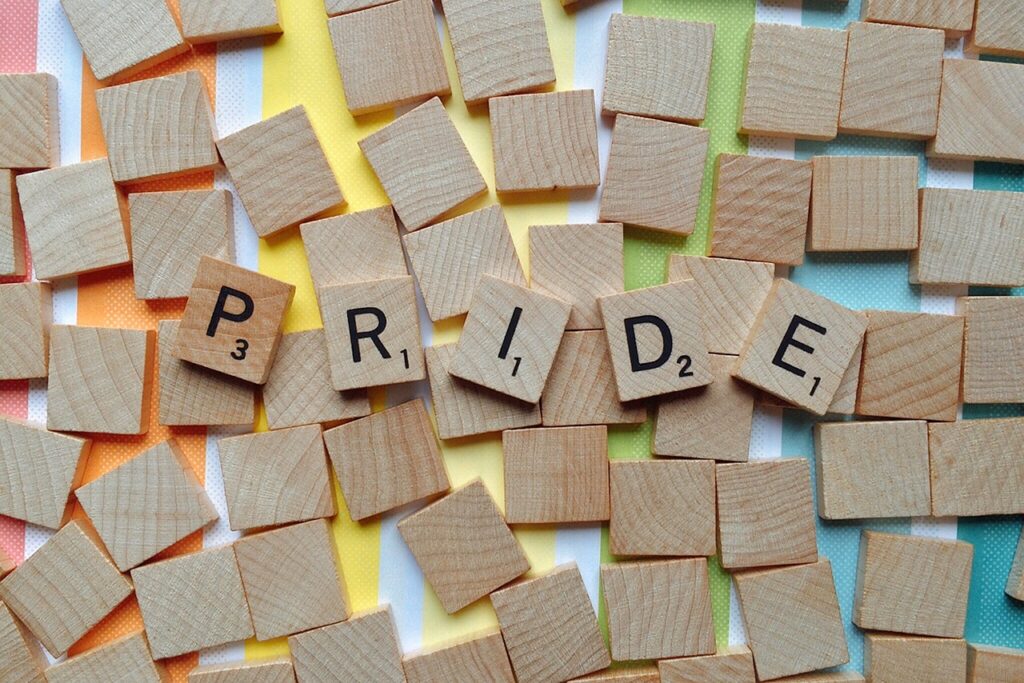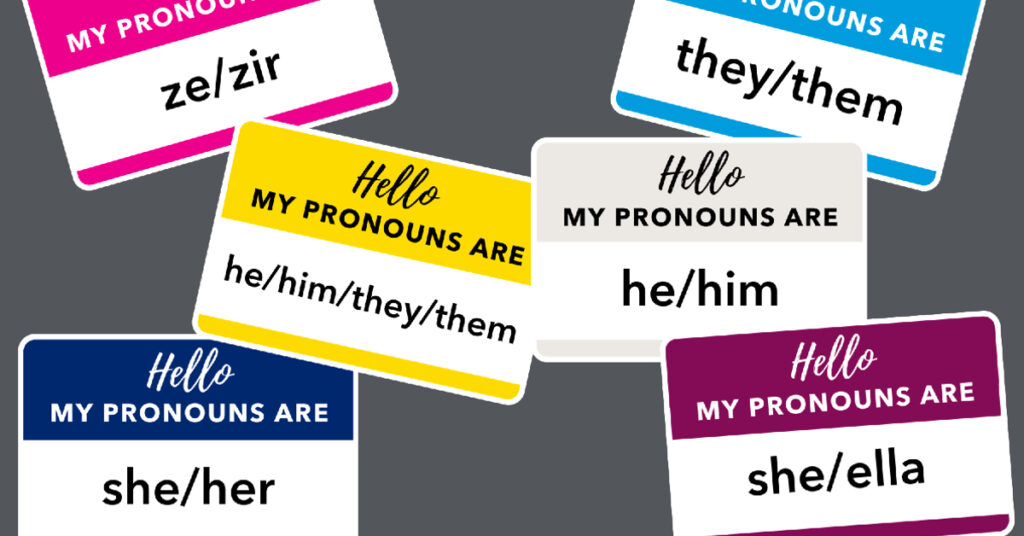Have you ever been asked to share your pronouns at an event? It’s an increasingly common way for event organisers to create an inclusive and welcoming environment for those who may not identify with traditional gender pronouns.
What are pronouns?
A pronoun has two meanings. Straight from the dictionary it’s a word that can function as a noun phrase used by itself and that refers either to the participants or to someone or something mentioned elsewhere (you, I, she, their, etc…)
The second definition is a third-person pronoun by which an individual wishes to be referred to in order to indicate their gender identity.
Traditional gender pronouns include “he/him” for males and “she/her” for females, but there are also gender-neutral pronouns such as “they/them” that are commonly used by non-binary individuals. It is important to use the correct gender pronouns when referring to someone.

Why might I choose to specify my pronouns?
Specifying your pronouns is a way to communicate to others how you would like to be referred to in terms of gender. It can be especially important for individuals who may not identify with traditional gender pronouns. It may make others more comfortable to disclose their own. It can show that you are aware of and supportive of the diversity of gender identities that exist. Additionally, it can help to reduce the likelihood of misgendering.

What is misgendering and why is it harmful?
Misgendering is the act of referring to someone using a pronoun or gendered term that does not align with their gender identity. For example, if someone identifies as female and you refer to them using male pronouns, that would be considered misgendering.
Misgendering can be hurtful and invalidating for individuals who have worked hard to embrace and express their true gender identity. It is important to be respectful and use the correct pronouns for individuals, even if it may take some time to adjust to using new pronouns. By making an effort to use the correct pronouns and respecting individuals’ gender identities, we can create a more inclusive and welcoming environment for everyone.
Misgendering can be a way that people with ‘privilege’ can control those who don’t have it.
Even accidentally, misgendering can perpetuate harmful stereotypes about trans people. The most common way people are misgendered is when others are not aware of their pronouns, which is why sharing them can be a helpful measure.

Is it ok to ask someone their pronouns?
It’s ok to ask someone their pronouns. You don’t want to make assumptions. If you’re not sure what pronoun a person uses, it’s best to simply ask them instead of making assumptions based on their appearance or the way they dress (for example).
You can also try using the “they/them” option if you are unsure.
Asking someone for their pronouns isn’t an imposition; it shows respect for their identity and encourages them to be themselves. If a person has never disclosed this information before, then it’s likely because they feel uncomfortable doing so in public, so asking them privately is generally easier than asking in a group setting or over social media platforms.
How can I share my pronouns?
Share your pronouns as and where you prefer. Some options are email signature, virtual event title, social media bio, or wearing a badge.
Some people can feel uncomfortable sharing their pronouns because they worry about what other people will think. Sharing pronouns can be difficult at first because it means sharing personal information about yourself and talking about something that may hold significant personal meaning.
No matter what your personal preference is, there’s no need for anyone else to argue about it. You’re allowed to make choices about how you do or don’t express yourself — and it’s totally ok if those choices change over time!
